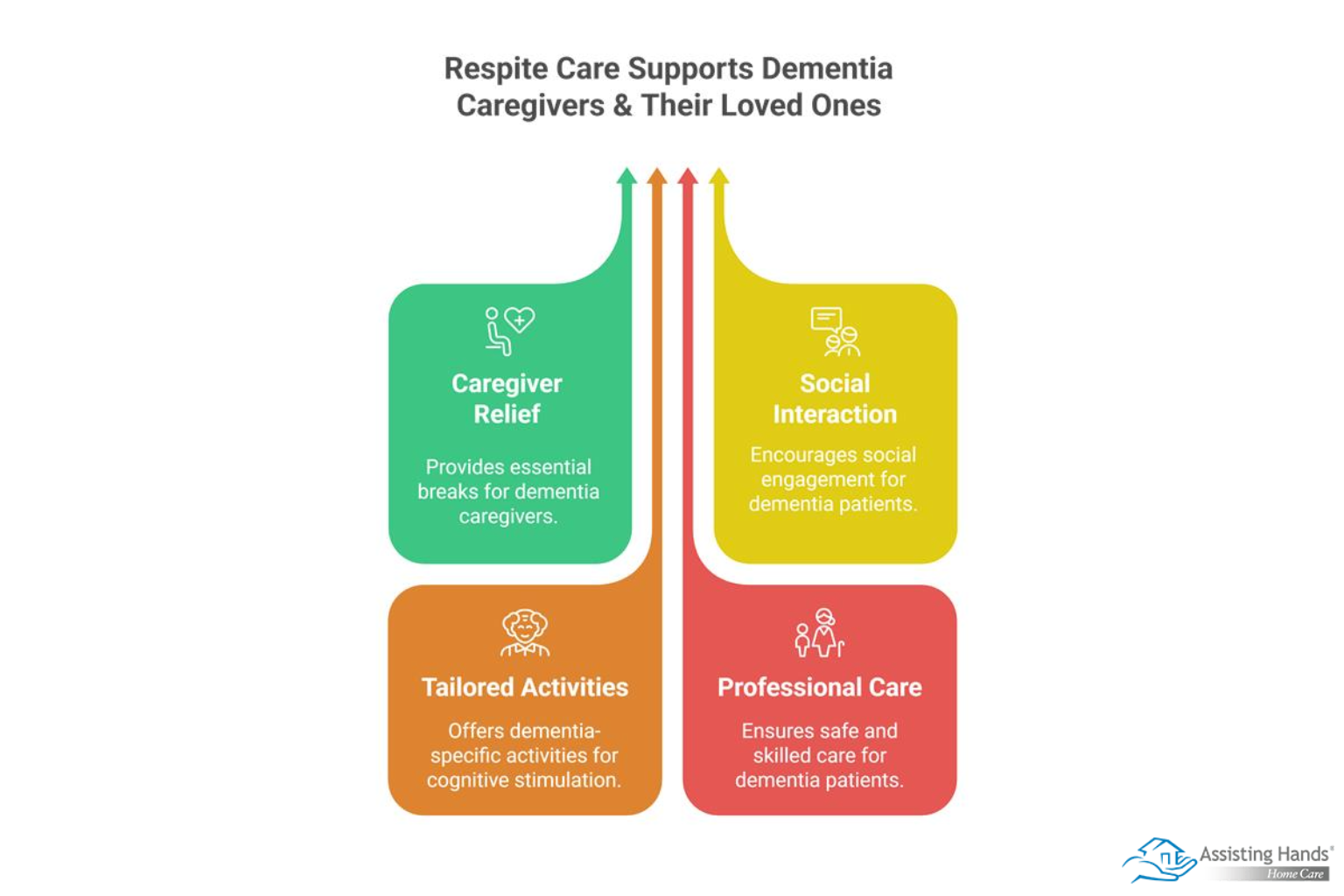
Table of Content
Caring for senior loved ones with dementia is an incredibly demanding responsibility, often requiring caregivers to juggle physical, emotional, and mental challenges. Respite care offers a temporary but essential solution, providing caregivers with much-needed breaks while ensuring their loved ones receive high-quality care. It’s a lifeline many caregivers don’t know about or feel hesitant to access.
Respite Care Explained
Respite care is a type of temporary caregiving service designed to provide relief for family caregivers. Whether it’s for a few hours, days, or even weeks, respite care allows caregivers to take a break from their duties while ensuring their loved ones are cared for by trained professionals. Respite care can be offered at home, in a specialized daycare center, or even in a residential facility.
The services offered within respite care often include assistance with daily activities, medication reminders, meals, and, most importantly, companionship. These short intervals of relief benefit not only caregivers but also the individuals receiving care, as they get opportunities for social interaction and engagement with different surroundings.

The Challenges Dementia Caregivers Face
Caring for someone with dementia is unique and incredibly complex. Dementia caregivers often face:
- Physical strain – Helping with bathing, mobility, or preventing falls can be physically taxing.
- Mental fatigue – Dementia often leads to behavioral changes, memory loss, and confusion, which can leave caregivers mentally drained.
- Burnout – Long-term, continual caregiving without adequate support can result in emotional exhaustion or even depression.
- Social isolation – Many caregivers find themselves withdrawing from their social circles to focus exclusively on caregiving responsibilities.
These challenges underscore the importance of giving caregivers time to rest, recharge, and maintain their own wellbeing.
One of the most challenging tasks of helping an elderly relative age in place safely and comfortably is researching agencies that provide senior home care. Turn to Assisting Hands Home Care for reliable, high-quality in-home care for aging adults. We offer 24-hour care for seniors who require extensive assistance, and we also offer respite care for family caregivers who need a break from their caregiving duties.
Benefits of Respite Care for Caregivers
Respite care isn’t just about taking time off. Its benefits go much deeper:
- Physical and mental health
Taking breaks gives caregivers the chance to rest, catch up on sleep, or even address their own health concerns. Having time to relax or engage in stress-reducing activities can boost both physical and mental health.
- Renewed perspective
Stepping away temporarily can help caregivers return to their duties with renewed energy and patience. It becomes easier to tackle challenges with clarity when the constant strain is reduced.
- Time for personal priorities
Caregivers often sacrifice their personal lives, careers, or hobbies. Respite care provides flexibility to focus on other priorities, whether that’s meeting a friend for lunch, attending a special event, or even running errands uninterrupted.
- Prevention of caregiver burnout
Regular respite care builds resilience by creating space for caregivers to prioritize self-care. Preventing burnout not only benefits caregivers but also ensures better care for their loved ones over the long term.
How Respite Care Supports Individuals with Dementia
While respite care undeniably helps caregivers, it also provides meaningful advantages for individuals with dementia:
- Social interaction
Engaging with new people, such as care professionals or peers in group settings, can keep seniors socially connected. This is essential for mental stimulation and emotional wellbeing.
- Tailored activities
Many respite care providers offer activities designed to cater to individuals with dementia. These might include memory games, music therapy, or light physical activity, which can contribute to cognitive stimulation.
- Safe and professional care
Professional caregivers are specially trained to meet the unique needs of individuals with dementia, ensuring their safety and comfort while family caregivers are away.
Different Types of Respite Care Options
Respite care comes in various forms, allowing caregivers to choose an option that fits their situation best:
- In-home respite care
Professional caregivers visit the home to provide one-on-one care. This is a great option for individuals with dementia who feel most comfortable in familiar surroundings.
- Adult day care centers
These centers offer supervised group environments where seniors can participate in structured activities during the day. It allows caregivers to take breaks during daytime hours while ensuring social engagement for loved ones.
- Residential respite care
Some assisted living or nursing facilities offer temporary stays for individuals requiring care. This is particularly useful if a caregiver needs to travel or requires an extended break.
- Community respite programs
Local nonprofits or faith-based organizations often run programs or events specifically aimed at providing respite for caregivers. Researching community resources can uncover budget-friendly options.
The type of elder care Wilmington seniors need can vary. Some need assistance a few hours a day, while others require more extensive around-the-clock assistance. At Assisting Hands Home Care, we tailor our care plans based on each senior’s individual care needs, and the plans can be adjusted at any time. We are a trusted provider of respite and 24-hour care, and we also offer specialized Alzheimer’s, dementia, Parkinson’s, and stroke care for seniors.
Finding the Right Respite Care Service
Identifying the ideal respite care service depends on understanding your caregiving needs and preferences:
- Assess your loved one’s requirements
Consider the level of support your loved one needs. For example, does your loved one need help with mobility, meals, or specific medical tasks?
- Explore local resources
Check with local senior centers, healthcare providers, or social service agencies for respite care recommendations.
- Consider cost and availability
While some insurance plans cover respite care, many out-of-pocket options also exist. Make sure to account for affordability, and book services in advance if needed, as some providers have limited availability.
Caring for seniors with dementia can be challenging for family caregivers. Luckily, there is dementia care Wilmington families can rely on. Professional dementia caregivers help seniors with dementia stay safe and comfortable at home by preventing wandering, providing cognitive stimulation, and assisting with household chores. If you need professional home care for your aging loved one, our Care Specialists are just a phone call away. Reach out to Assisting Hands Home Care today.








